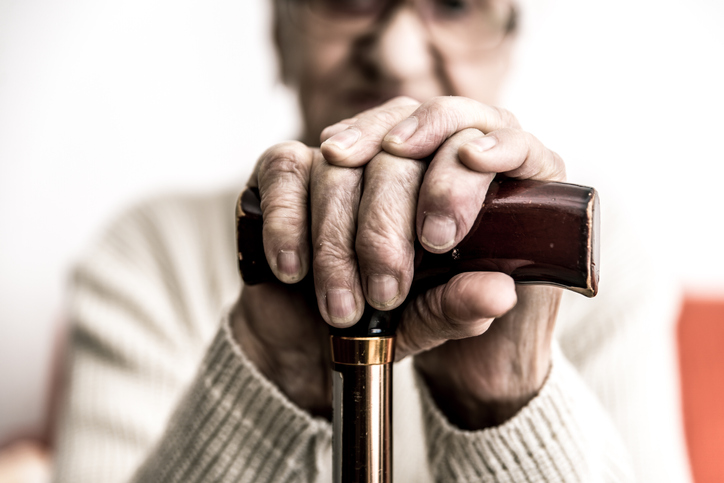
Stress management
Stress is essence of life and disease. Too much of stress or reduced coping abilities can put demands on your system and can create damage. Many people do not recognize that they are under stress. The first step then is to recognize that the person is under stress and he should take active steps in doing something about it. Facing small doses of stress can act as a creative challenge and can increase your stress coping abilities and enhance your potentialities. Poor stress coping can be due to overwhelming external stressors or several stressors occurring simultaneously or it can be due to inadequate stress coping abilities. Improving different aspects of functioning can help learn to cope with stress. The first step is thinking. The way we face stress is dependent on certain habitual patterns of thoughts zipping through our mind. These thinking patterns are heavily influenced by our earlier experiences. They may make our thinking, feeling, behavior and perceptions irrational thus reducing objectivity. It is necessary to change thinking patters and develop new adaptive habits, which are more helpful to you. The next step is relaxation. Meditation, yoga, autohypnosis and progressive muscular relaxation are various techniques to quieten the tense nerves and muscles. Regular practice of relaxation for ½ – 1 hour every day, definitely reduces arousal, which is well reflected throughout the day. Breathing patterns and exercises also reduce the general arousal and improve the mental and physical functions. These practices take weeks to months to show its results. Regular aerobics can build emotional hardiness. It helps improve your concentration and memory, counteracts hostility, enhances self-image, elevates your mood and reduces depression, regulates your appetite and controls your sleep. The third step is to develop altruism. By helping others you feel more in control of yourself. When you are a helper, your self-esteem improves. The other important step is to develop an interest. Having an interest or a creative pursuit helps you to let your emotions go in an organized way. Outdoor hobbies like playing games or quiet indoor hobbies like playing an instrument or singing or painting allows your mind to relax and your emotions to calm. These interests bring you in contact with people who have similar inclination. Spending calculated time away from stressful job, demanding wife, critical boss or noisy children gives you relaxation. These interests and hobbies also open up your creative frontiers. The fifth step is your nutrition. Eating healthy food and control consumption carbohydrate provides you the necessary strength and stamina. Overeating is more damaging than under eating. Obesity and poor physical condition reduces the stress coping ability. The perverse pleasures of eating have to be controlled to lead a life free from stress and illness. An increased amount of tea, coffee or cola affects your concentration and reduces your working capacity. The next step is your emotions. It is your feelings, which give you drive and motivation. If you control and understand your emotions, you can master many stressful situations. Emotions help you to establish relationships and empathize with people. Control over negative emotions like hate, fear, anger etc. can enhance positive emotions like love, happiness and joy. This will give you more power and strength to cope with stress. The seventh tip is about religion. Regular praying helps you to reduce your arousal and calm your nerves. Religion advocates no or low consumption of intoxicating drinks and regulated food habits. The philosophy of religion and the clear do’s and don’ts makes life easy and simple to manage. All religions accept all sorts of people from a variety of life from princesses to prostitutes creating a sense of importance, acceptance and increased self-esteem. The package of religion consisting of many positive programs has been a best seller since ages and will always remain a best seller. The next is about a holiday. A short holiday or an evening off from your stressful life can give you rest and capacity to work hard on the next day. A vacation provides a necessary relaxation, lets you develop new friendships and fellowships, gives a sense of adventure to your life, and offers you surprises and beauty. You may have the fondest memories of some of your vacations in the past remembering of which adds happiness even many years later. One of the most important points is control of anger. Anger is a tricky emotion. It is useful in mobilization of energy during emergency and to protect your rights. Aggressive or hostile behavior over a consistent period of time can raise your blood pressure, increase the chances of getting heart attack and reduce your immunity against cancer, aging, depression and infection. At interpersonal level, it raises barriers between people thereby making the marriage a minefield and developing distance. In addition it creates a sense of helplessness and reduces efficiency at work. Socially aggressive people get isolated and lonely. The next point is to be able to develop a sense of humor. A good sense of humor has antistress power. Laughter is the shortest distance between two people and a good sense of humor conveys a sense of acceptance to other people. A good dose of laughter acts as the best medicine. The other important point is about time management. It is an essential requisite for stress. Dividing your time according to your priorities will increase your efficiency. Delegating work would give more time to do things what you enjoy. The last point is your happiness. Happy and optimistic people can face stress much better than unhappy and pessimistic people. The capacity of happiness is within oneself and can be cultivated. Happy people do not require props to make themselves happy.
The art of stress management may sound a little difficult. It is a permanent habit. People who are capable of coping with stress are not only productive and efficient in their life but they also generate enthusiasm in their environment. Most of the faulty habits, which increase our vulnerability to stress, are learnt during childhood and earlier years. If one masters the methods to cope with stress effectively, one may be able to impart the knowledge to children and produce the generation, which will be capable and component to fact stress in the future.



